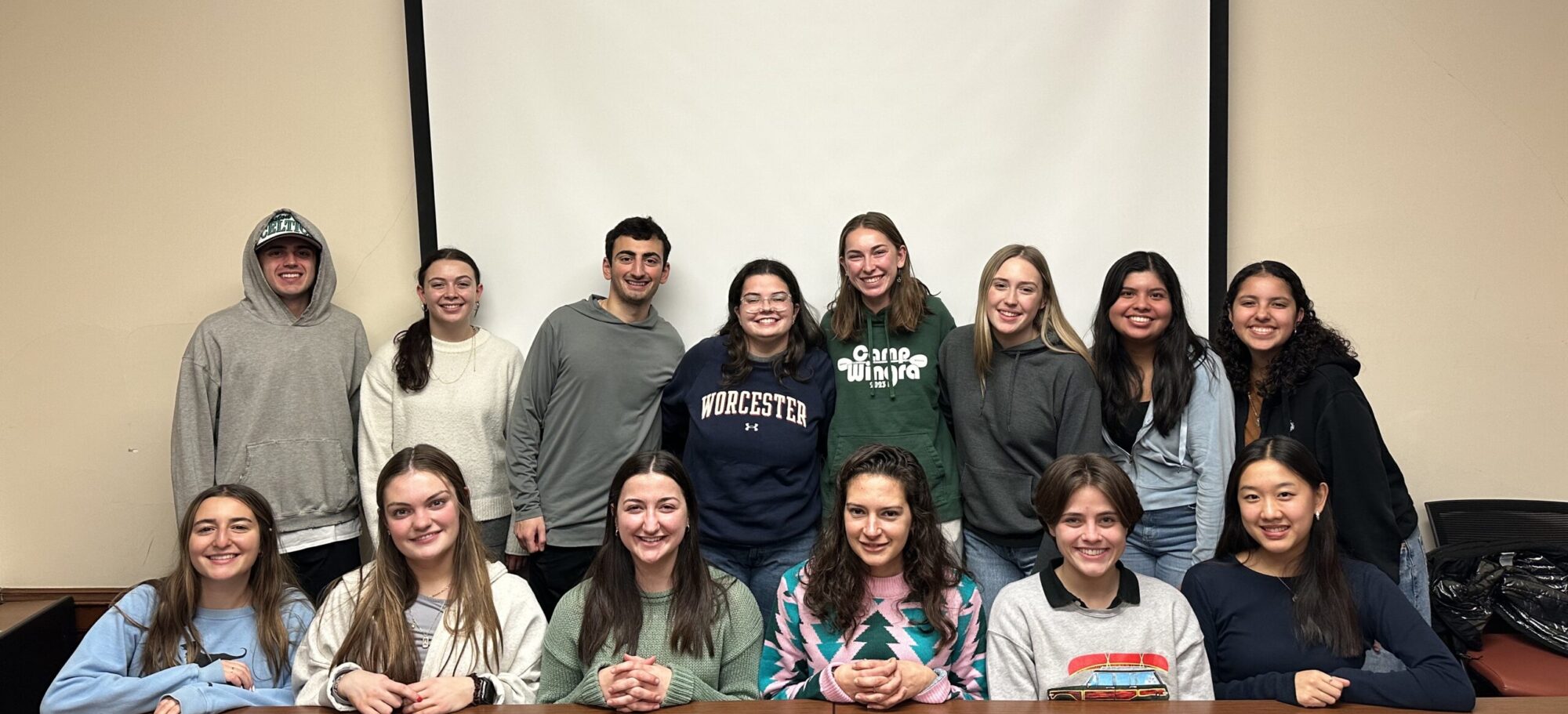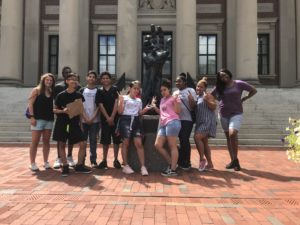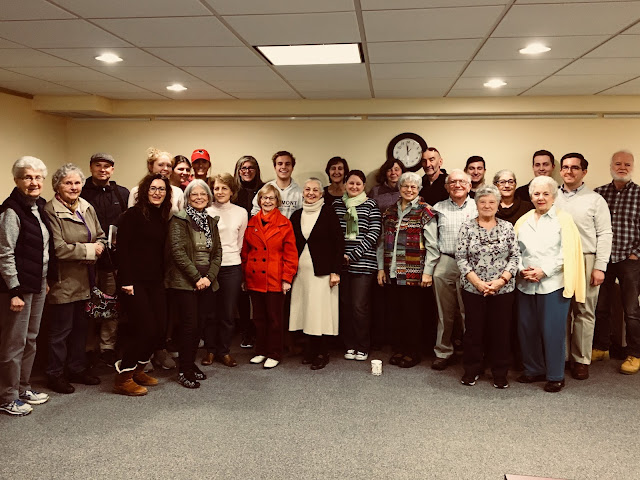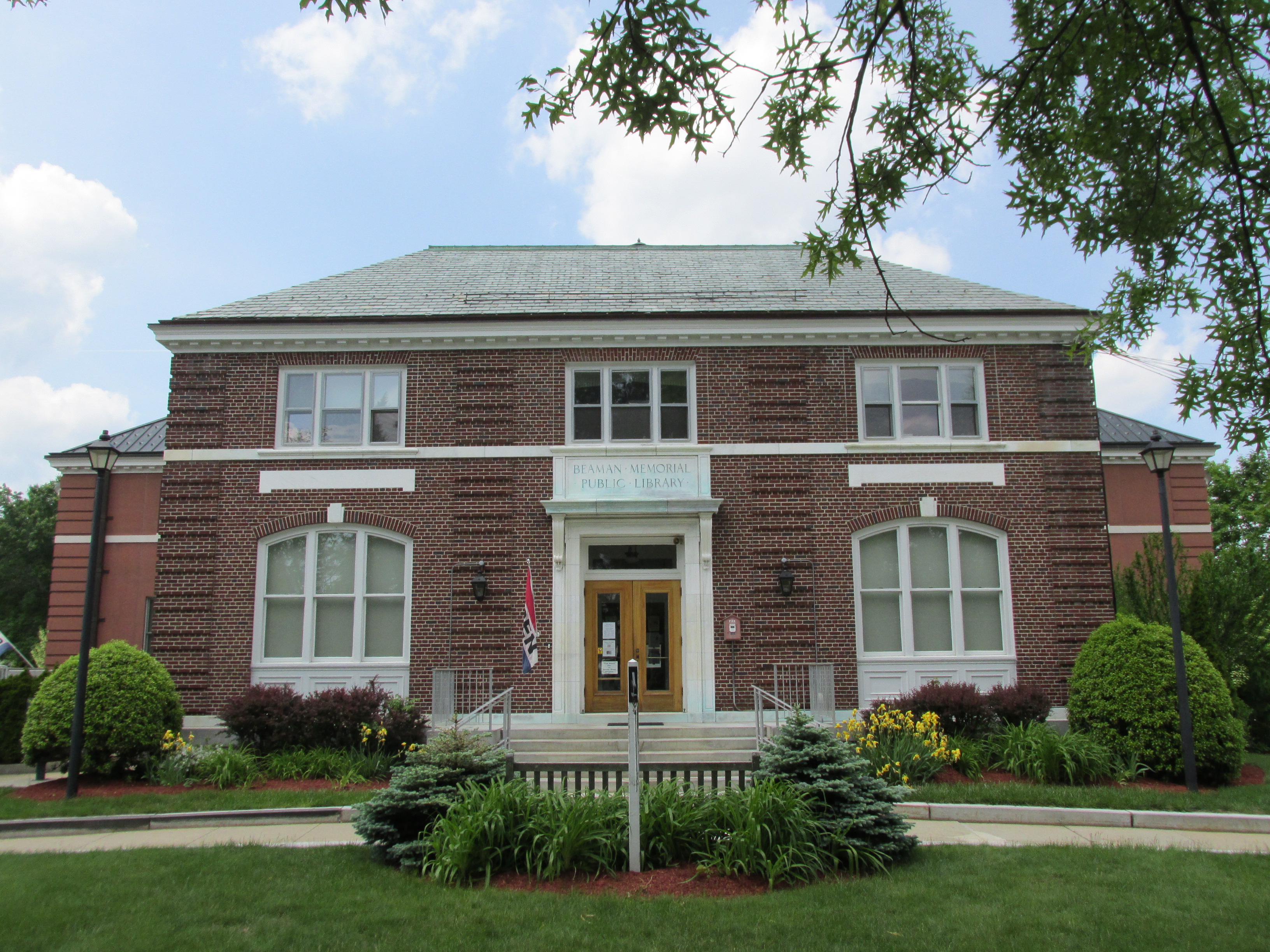This guest blog features Holy Cross alumna, Theresa Becchi ’10. Theresa recently wrote an article for the Holy Cross Magazine about her experience in the Peace Corps. Theresa served as a panelist on the post-graduate year of service panel for the 2018 Non-Profit Careers Conference where she also shared about her Peace Corps experience. Below are her reflections.
A year ago, I sat in a prison yard under the corrugated metal roofing of a makeshift shelter, surrounded by women who had trafficked drugs, trafficked humans, killed their husbands or killed a child. We laughed, cried and sang, squinting in the blazing sun, a welcomed breeze rumpling our dirty hair. I had entered the prison thinking of them as strangers, and I left knowing them as friends.
From 2015 to 2017, I served as a Peace Corps volunteer in the island nation of Timor Leste (East Timor) in Southeast Asia. I worked with female prisoners at one of the only two national prisons on the island with a Timorese Non-Governmental Organization that provides services to people experiencing trauma, mental illness and other psychosocial problems. For two years, I went to the prison several days a week to support the creation of a female prisoner-led sewing cooperative, teach income-generating activities like making jam and facilitate weekly yoga classes.
Before Timor, I had never set foot in a prison. I had, admittedly, found it easier to look at people who were in prison simplistically: They did something wrong, they were bad people and they deserved to be there. But over the course of two years, I got to know these women as more than just prisoners. They were women struggling to move forward, struggling with regret, trying to accept what they had done, come to terms with the situation in which they found themselves and find a support system among their fellow inmates. They were women who were feeling such strong despair and remorse, aching for their daughters, sons, mothers and fathers, for forgiveness, for the feel of the ocean current and the taste of fresh corn stew. They longed for the hole in their hearts to be filled, hoping and praying that they could do better, and waiting, constantly waiting, for the day they would walk out the prison gates into a world of redemption.
During my Peace Corps service I often struggled with the feeling that I was in my own prison; I also ached for family, friends and the familiarity of home. I struggled with loneliness and frustration and I, too, was waiting for my two-year commitment to come to an end.
In spending time with these women, who were capable of committing intense transgressions, I learned that they were also capable of intense courage, faith, love, generosity and hope. They helped me through my years of service. They brought me joy and gave me courage. I shared real laughs with them as they learned to do downward dog, watched as they giddily tasted homemade peanut butter for the first time and saw them organize and lead the formation of a small business. I also bore witness to their struggle with their regrets, pain and boredom. Every day they worked to find forgiveness and hope — through prayer, song, jokes, teasing, volleyball games, sewing, hugs and tears. They dug deep to find it. They kept going. Over the course of my time with them, it became impossible for me to view them as anything but good people. Rather, I came to know and understand them as the complicated, intricate, profound humans we all are, worthy of respect, dignity and, above all, love.
Joining the Peace Corps was likely an inevitability for me — my sister (a fellow Holy Cross alumna) served, her now-husband served and my mother served. I came to the Peace Corps later than the typical volunteer, having joined several years after undergrad. After graduating from Holy Cross, I worked on political campaigns in Connecticut and Virginia, and then took a job at a social policy think tank. After a few years, a nagging whisper, which had been dormant, returned, and I applied to the Peace Corps knowing, finally, it was the right step for me.
Sargent Shriver, the first director of the Peace Corps, said, “Serve, serve, serve, because in the end, it will be the servants who save us all.” This quote reminds me of the Holy Cross mission of “men and women for others.” Holy Cross teaches us that in our own lives, in our own neighborhoods, in our own families, we are all capable of serving others. Service is not done because it looks good on Instagram or on a resume, but because it is truly in giving that we receive. When we take the time to set our egos and ourselves aside and seek to recognize ourselves in others — even those who on the surface seem the most foreign and unrecognizable — we will gain the clarity we have often been missing. I think of my friends at the prison, and as I remember their isolation and fear, I remember my own. I remember their ability to hope and forgive — to forgive themselves and others who did them wrong — and it is from them I learned how to try to do the same. When we serve others, we are reminded of the dichotomy within each of us: We are capable of great misdeeds, but we are also capable of doing great good.
This world isn’t easy; it is a tough place and people do bad things. These days, especially, it is easy to feel frustrated, deflated and angry. Often, the only control we have is choosing how to respond to the reality of a situation. Holy Cross and the Peace Corps encouraged me to look others in the eye and say, “I am with you,” and not shy away from the discomfort and awkwardness of difference.
When we choose to serve, when we see others’ vulnerability and reveal our own, we empower others and our own selves to become agents for good and peace in this tumultuous world. We are changemakers, but we do not become that way alone. We are made stronger, better and more capable through service to others. The choice to serve is rarely easy; it requires constant effort and recommitment. But through service, we are exposed to an indelible, irrefutable truth: That although we exist as creatures of duality and our internal currents ebb and flow from good to bad, it is the greater, more profound good that longs to rise and break at the surface. Service to others allows for that release in our own selves and in one another.






